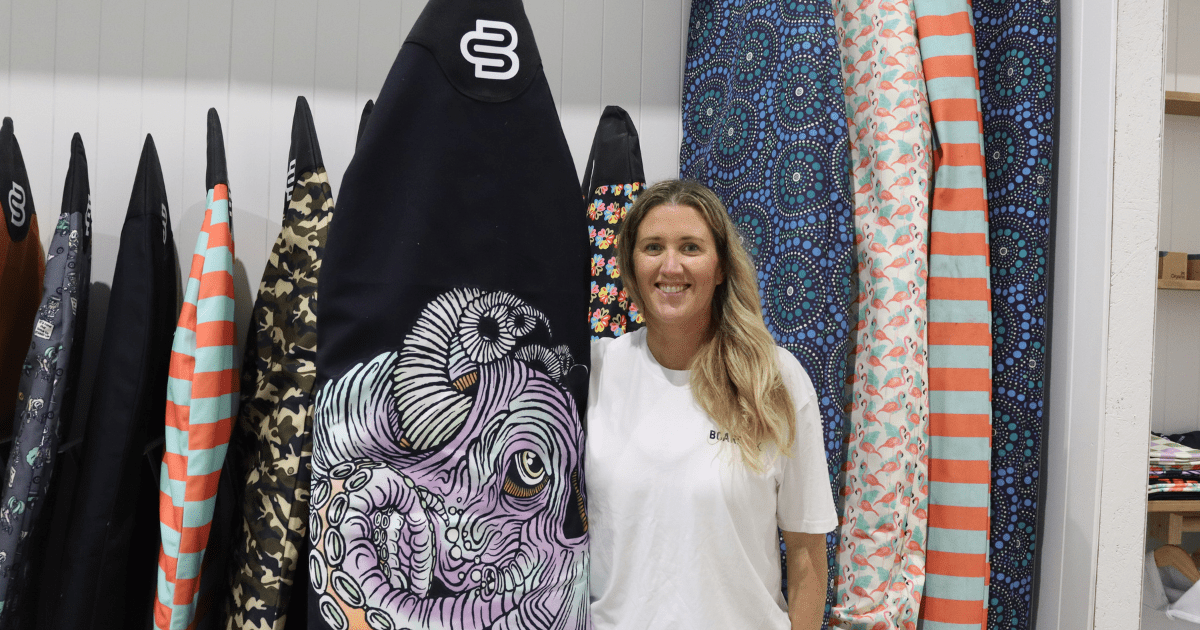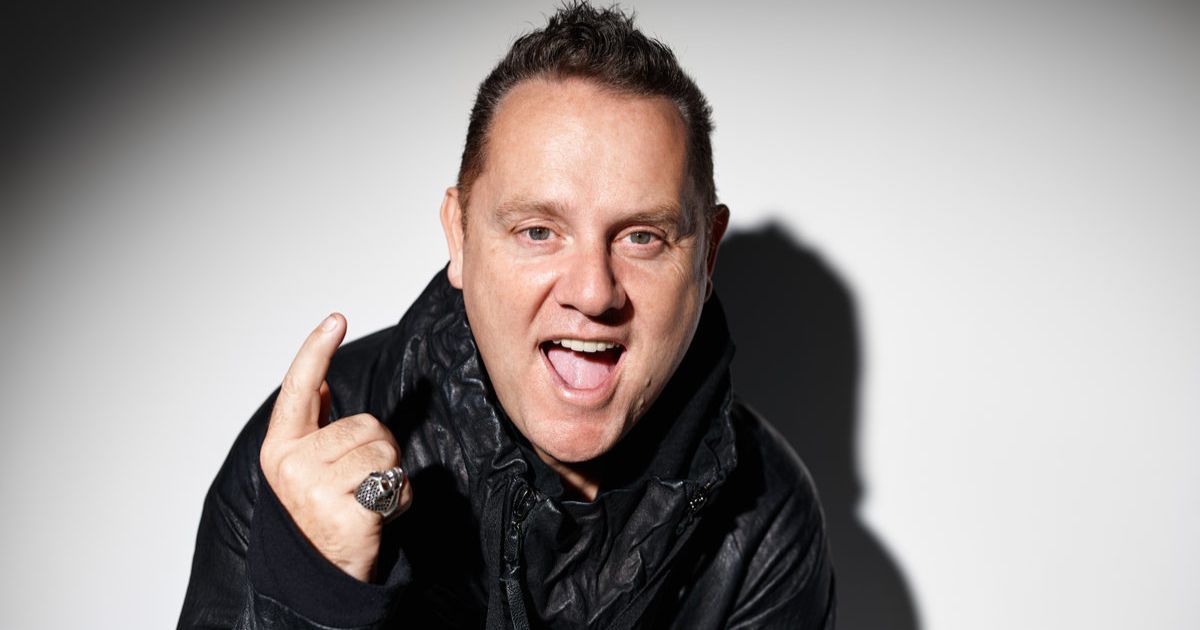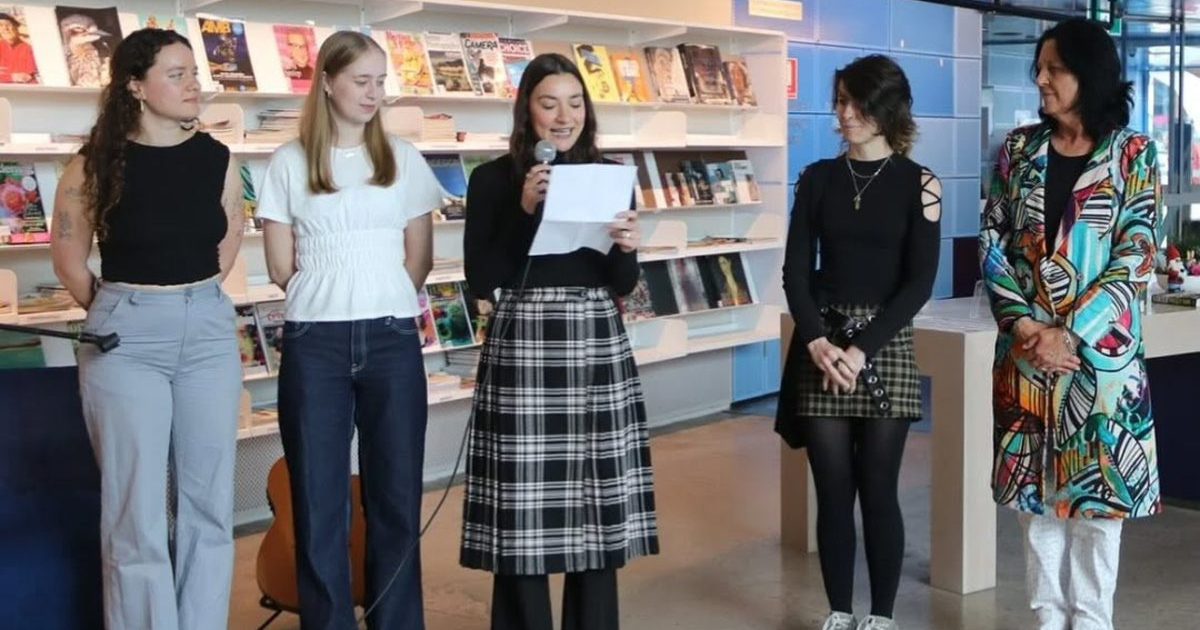Beyond the canvas
Painter Nic Everist is fascinated by the stories behind the landscapes that surround us.
Some of these stories are historic.
Others are rooted in our own connections to, and experiences with, place.
For the 32-year-old landscape artist, the time she spends in nature provides the grounding necessary to delve into and understand her own emotions.
Her art often documents this lived experience, building on the connections made between her thoughts and the places she visits.
“Every person’s experience in their life is unique to them but they all have strings of similarities,” Everist said.
“When I’m out working through my own stories and my own things that are going on in my life and seeing them through nature, I feel like people can relate to that in their own lives.
“When they see a familiar landscape that I’ve painted or created…they then can use their own stories to connect to that landscape.
“The landscapes people connect with remind them of something in their own lives that they’ve experienced, or a place that they’ve really enjoyed and brings them happiness, or reminds them of someone, and they can insert themselves into my paintings.”
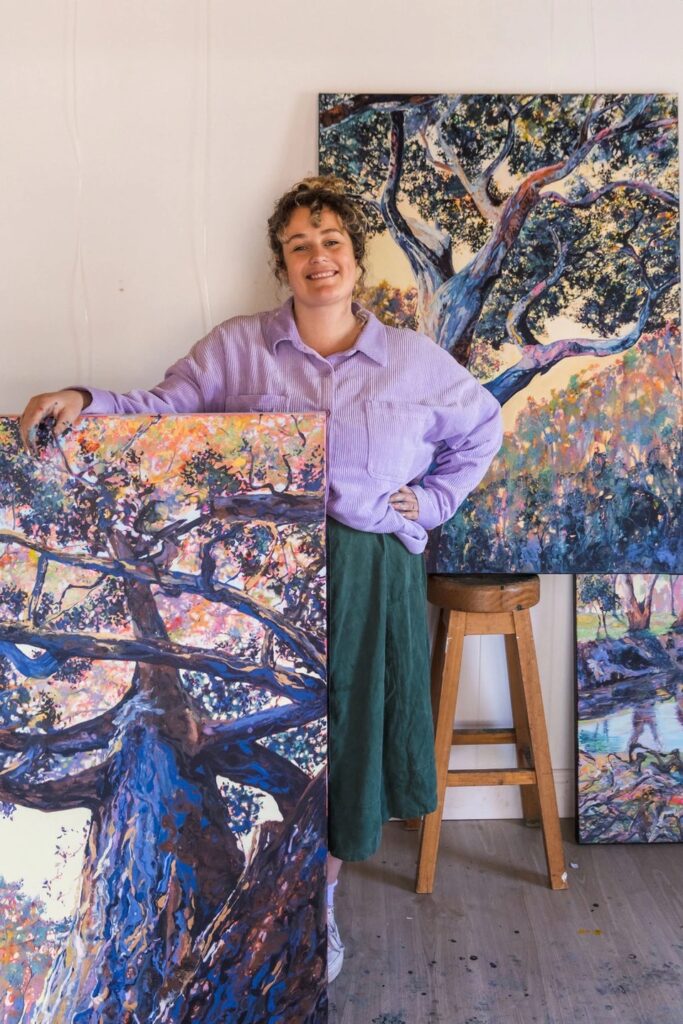
Everist uses a pouring technique to create her landscapes, combining fine details with the textures formed by the technique.
Travel, both local and international, provides constant inspiration for her work.
“Every holiday [my partner and I] go on or new place we visit, we go on hikes and I get inspired by the nature and the landscapes and bring photographs and sketches back to my studio and then recreate them,” she said.
“My honest goal in life is to just explore everywhere in the world and paint it.”
After initially training as a physiotherapist, it was a feeling of unfulfillment and concern for her mental health that saw Everist turn to art.
“I really got back into painting as a way to help with my own mental health,” she said.
“I had a bit of a tumultuous time…and decided to get back into doing what I enjoyed as a kid and that was drawing.
“I really used drawing as mindfulness, a way to escape, a way to figure out what I enjoy in life, and quickly became obsessed.”
It didn’t take long before she had expanded to painting, and “it kind of took off from there”.
Only three months later, with no connections in the art world or experience in running a business, Everist left her physiotherapy job with the aim of turning her creative outlet into a career.
“I went through a lot of ups and downs… and very quickly ran out of money.”
But with the support of mentors and coaches, she found her feet and developed her own framework for building a successful business.
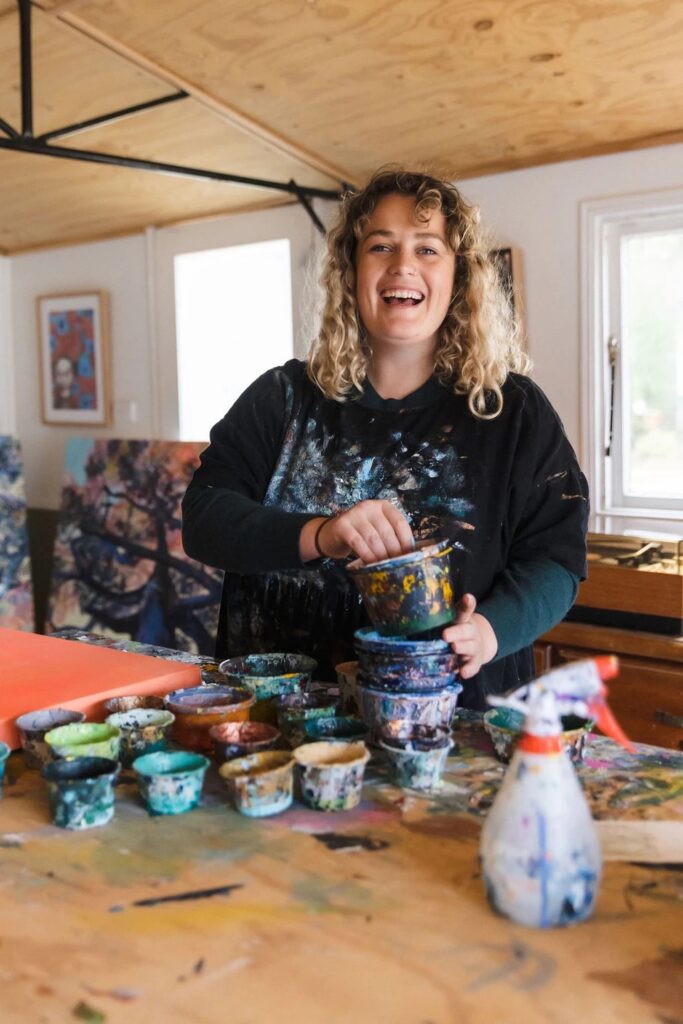
Now Everist aims to help other artists and creatives turn their passions into thriving businesses, offering a variety of one-on-one and group mentoring programs.
“My passion for business and understanding business, the fact that it excites me, and I’m really driven about building my business, is something that not all creative humans are super passionate about or see the fun in,” she said.
“I realised that’s something I can really help creatives understand…so they’re not dreading diving into [it] all.”
Her mentoring program tackles the key components of building a business including its structure and marketing plan and is complemented by a podcast titled The Full Time Artist.
“Through my mentoring programs, I could only reach so many artists,” Everist said.
“I wanted to be able to have a platform where I was able to provide more education and really feel like I could answer people’s questions and reach more people.
“Anyone can listen in and it’s a really fun part of my business.”
A core aspect of her mentoring programs, Everist said the first step for artists looking to recreate her success, is to develop their own unique creative voice.
“That’s looking at all your unique experiences, your viewpoint, your skillset and really combing that into a creative voice that’s going to help you stand out and keep you motivated and passionate and driven to keep exploring your creative work.”
Ensuring that creative work is well aligned with the artist and their lifestyle is also important.
“You don’t want your creative work to be in fighting with, or going against, the other areas of your life,” Everist said.
“You want to make sure you have a really clear vision of how your creative business and your creative work can be integrated into your lifestyle, into where you want to live, into the family life you want to have, into your personal goals.
The next iteration of Everist’s mentoring programs will launch next year.
For more information including details on painting commissions, head to niceverist.com.











